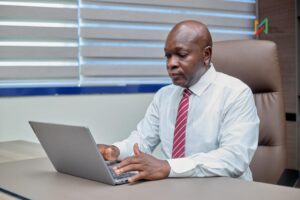
By Ekow Arthur-Aidoo
Ghana in 1996 under the leadership of Ft. Lt. Jerry John Rawlings set out its 25-year long-term goal of achieving a balanced economy and a middle-income country status and standard of living, with a level of development close to the present level in Singapore.
The 102-page policy documents stated that by the year 2020, Ghana will be creating an open and liberal market economy, founded on competition, initiative and creativity that employs science and technology in deriving maximum productivity from the use of all human and natural resources and in optimizing the rate of economic and social development, with due regard to the protection of the environment and to equity in the distribution of the benefits of development.
Specific Goals
The specific socio-economic development goals for Ghana for 2020 as set out in the National Development Policy Framework (NDPF) were as follows; 1. Long, healthy and productive life for all individuals is the norm, with access to an enlarged range of choices for employment, shelter and leisure; 2. The benefits of development are equitably distributed and gross deprivation and hard-core poverty are eliminated; 3. National income is growing by at least 8 per cent per annum, compared with the present average of 4-5 per cent; 4. Population growth is reduced from its present level of about three per cent to two per cent per annum, thereby allowing real income per head to rise to more than four times the 1993 level. 5. Solutions to socio-cultural and economic problems of the individual, the community or the nation are recognized and sought within the domain of science and technology.
Robust agricultural technology
The promoters noted that the above aims, “will be achieved by creating a robust, diversified and commercially-based agricultural sector with strong linkages to an efficient, technologically-progressive and market-oriented industrial sector, both of which sectors pay due regard to the maintenance of a sound and sustainable environment as well as to the generation of employment opportunities, including self-employment.”
“Such a transformation of the country’s socio-economic structure will involve not only economic changes but also reforms in land tenure, legal and administrative systems so that they are fully supportive of private sector development, including the promotion of foreign investment.”
Agriculture, Vision 2020 said was the dominant sector in Ghana’s economy (about 40 per cent of GDP). At the time of the launch of the Vision 2020 Presidential Report in 1996, the Agric sector growth had an average growth of less than two per cent per annum.
“Majority of the poor have agriculture as their main source of income whilst about 40 per cent of inflation is accounted for by local food prices. The role of agriculture in Ghana’s development is therefore critical; without significant improvement in agriculture’s performance, the long-term goal of the country cannot be achieved. Agricultural output is therefore targeted to increase an average growth rate of four per cent per annum (for the period 1996-2020) compared with the current average of 1.8 per cent (1984-1992); to achieve this expansion of agricultural production will require major changes in agricultural technology and in the organization of rural society, including land tenure system and conflict resolution in land resource use.”
The Presidential Report alluded that Agric policy will in the long term, focus on an increase in the productivity of all types of farm inputs and diversification in the range of agricultural goods and services produced, mainly through agricultural research; interaction between farmers, extension workers and researchers; market-based input and output pricing policy; and improvement in institutional capacity to export agricultural products.
“Agriculture in the Ghanaian development programme is expected to ensure food security and adequate nutrition for all Ghanaians; to supply raw materials and other inputs to manufacturing, health, tourism and construction sectors; to contribute to an improvement in the balance of payments through increased farm and forest products export earnings; and to provide producers with farm incomes comparable to earnings outside agriculture.”
Analysis
The President Report after its launch could not even achieve its 5-year medium-term objective in 2000 before the incumbent lost power to the opposition New Patriotic Party (NPP) at the time which was led by John Agyekum Kufuor.
When President Kufuor assumed office, the Vision 2020 agenda was truncated because of the “new king; new law” mentality. He (Kufuor) had his own agenda and the beautiful 2020 vision was buried.
He, through Dr. Papa Kwesi Nduom whom he initially appointed Minister for Economic Planning and Regional Integration, supported by JH Mensah, Senior Minister, promoted the Ghana Poverty Reduction Strategy (GPRS).
Kufuor’s administration argued that Ghana had missed all the targets of Vision 2020 and had in fact declined into poverty.
President Kufuor after serving eight years as the President of the Republic handed over power to John Evans Atta Mills and the National Democratic Congress (NDC).
The NDC coming back to power never continued with the 2020 agenda which was launched by a previous NDC administration. Unfortunately, President Mills passed away and his vice-president John Mahama was sworn in as President of the Republic of Ghana. President Mahama also did nothing to ensure that Vision 2020 was implemented.
Many people believe that he had no idea of what the Presidential Report of Vision 2020 required. Meanwhile, he tried implementing a new 40-year development plan which is somewhat closer to what the socio-economic development plan of Vision 2020 states.
This 40-year development plan was however handed over to President Akufo-Addo but it is unclear whether he will be implementing some of the policies stated therein. This is because the president has his own agenda of Ghana Beyond Aid through which he aims to see a Ghana developed without any aid from the Western World but at the rate the government is borrowing, analysts argue that the Akufo-Addo/Bawumia administration does not believe in their own Ghana Beyond Aid agenda.
Writer’s Email: paanyan7@gmail.com
Twitter: @ekowrites








